It takes a village to raise a globalized product - Who is responsible for Localization in your company?
This week in my blog post I have a very easy question for you.
Who is responsible for Localization in your organization?
Easy! The Localization Team
Are we sure?
In the following paragraphs, I am going to break down who does what when we are developing a digital product; and that will help us to have a clearer idea
-C-Suite. If they are not serious about supporting the Globalization strategy, or if the Globalization strategy is limited to translating… then it will be very difficult for…
- Product Management to book time for Globalization tasks in the schedule when creating the global product roadmap, and if these tasks are not included in the roadmap, then it will be very complicated that ...
- Developers do code Internationalization tasks. And, product code readiness from an Internationalization perspective is a very important step when creating a global product in the early phases of software development … and if this is not done…. then it will be very complicated that ...
- The LQA bugs reported by QA et these bugs related to Globalization activities get fixed, they will be solved as “postponed”, “too late to fix” etc etc. With poor I18N a product will have more functional, linguistic, and cosmetic defects than the English version. In that case, then it will be very complicated that ...
- Marketing carry out a global promotional of the product
You follow me right? it's a full-fledged domino effect! So …
Who is then responsible for the Localization in your organization?
It should be everybody!
3-4 years ago when I visited a supplier in Dublin, I was having coffee with a Product Manager and while we were chitchatting ... I asked her how her life was going after having born her first child a year ago ... she told me … that of course that changed her life! that she needed a lot of help for the different tasks that her baby had brought to her day-to-day… and she used an expression that I personally was not very familiar with
It takes a village to raise a child
I loved that expression! Later I learned that it was an African Proverb, and I think that African proverb can be applied perfectly to our lovely Localization industry.
It takes a village to raise a Globalized product!!
Let’s see who lives in this “village” that is going to “raise” our global product …..
Source:@yolocalizo Click HERE to download the infographic
C-Suite, so they can include Localization activities as part of the company global growth strategy
Game artists, so they ensure they use the right look and feel, colors, and imagery ensuring no culture might feel offended.
Content creators, so they ensure they use the right narrative arch so the content is culturally relevant.
Developers, so they ensure the code of the app is global-ready. If you fail to run internationalization activities early in the software development process be prepared later to face font integration problems, overlapping text, and many other internationalization issues
Marketing, so the product we are creating can be advertised in different markets to maximize local engagement. Each market will need a different marketing campaign
Product managers, so they ensure that localization activities are not an afterthought and they are included in the roadmap from the beginning to the end.
QA so our app has the top-notch quality C-Suite envision for the product
Legal to ensure that the different laws governing in the different countries do not catch us off guard (i.e video games loot laws in Belgium, the copyright of the fonts for the different languages needed to create a multi-market product ...)
Data scientific so Globalization product KPIs are included in their dashboards (global MAU, DAU, engagement per market …)
UX craft so they ensure global user research (persona analysis per country) and UX design considers global audience and different design in the UX as part of global success (allow for text expansion in user interfaces!)
Platform team (in the case of mobile apps) so they pitch the localized version of the app to Google and Apple and therefore being featured in those platforms
Security team so they ensure that third parties, LSPs or freelance translators can go through VPN and other technical gateways so they can perform Localization activities
IT /Share Technology teams so they ensure whatever TMS/CMS solution is chosen to manage the content can be deployed effectively in your company tech framework
The audio team so they include voice-over audio files so later Localization and culturalization audits can be carried over
Customer Support so our users get the attention they deserve in their native language
Finance so the payment to Language and Localization Technology providers can be administered
Recruitment/HR so internal Localization or any Product vacancies can be filled with skillful candidates
Procurement so the contract for the different providers can be signed after RFPs (and then renewed as needed)
And last, but of course, not least … the Globalization/Localization team 🤩 to glue the output of all the above teams summarized above, and execute all Localization activities needed to launch a truly global product!
In Summary
Unfortunately in many cases, the responsibility of launching a multi-market product is usually seen as a task of the Localization / Globalization team, and although, indeed, this team is ultimately responsible for ensuring that all content is localized, it is no less true than creating a truly global product is a task in which all the roles described above are of great importance.
The moment any of the above roles do not collaborate with the Localization team, or simply see Localization as an after-thought (first we code and build the English product and then we will kick off translation) …then we are moving away from "raise a Globalized product" "with a village" mindset to something else ...
We live in a global hyperconnected world, so let's not forget that creating a global product is everyone's job.
Together is better!
@yolocalizo

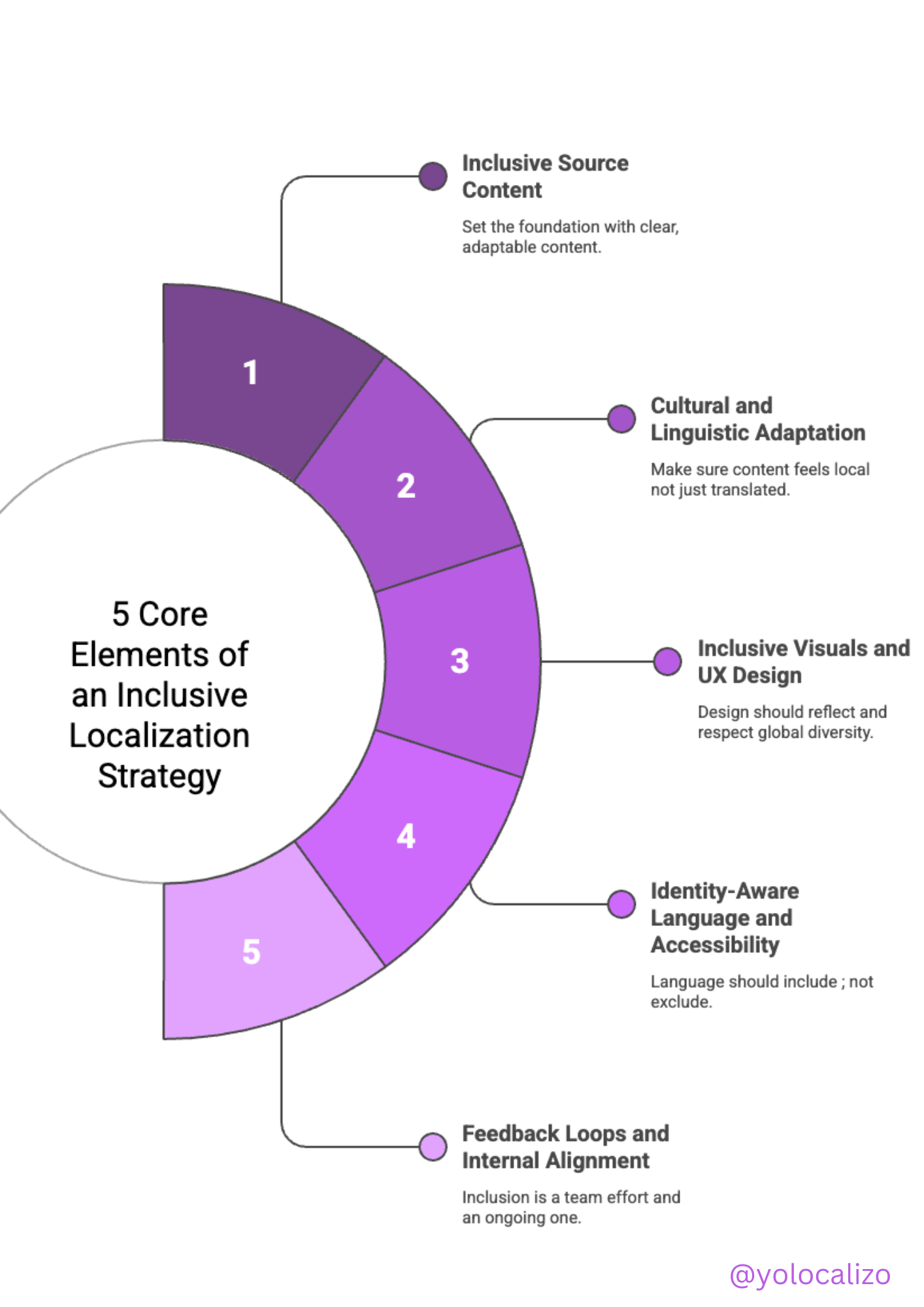

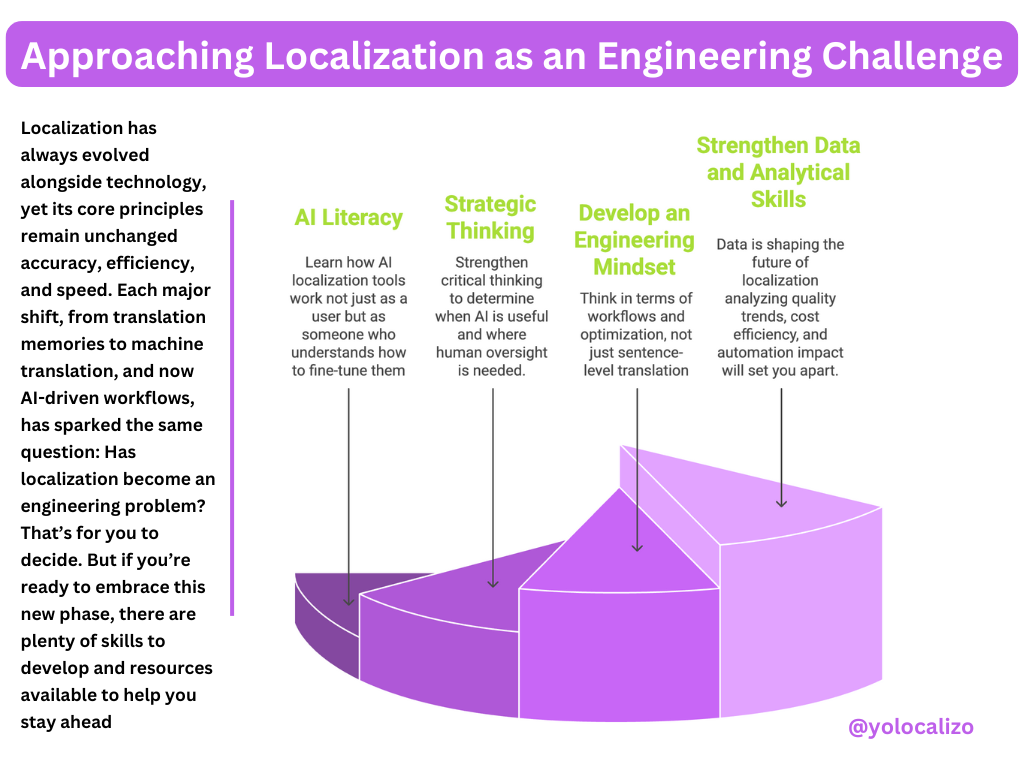
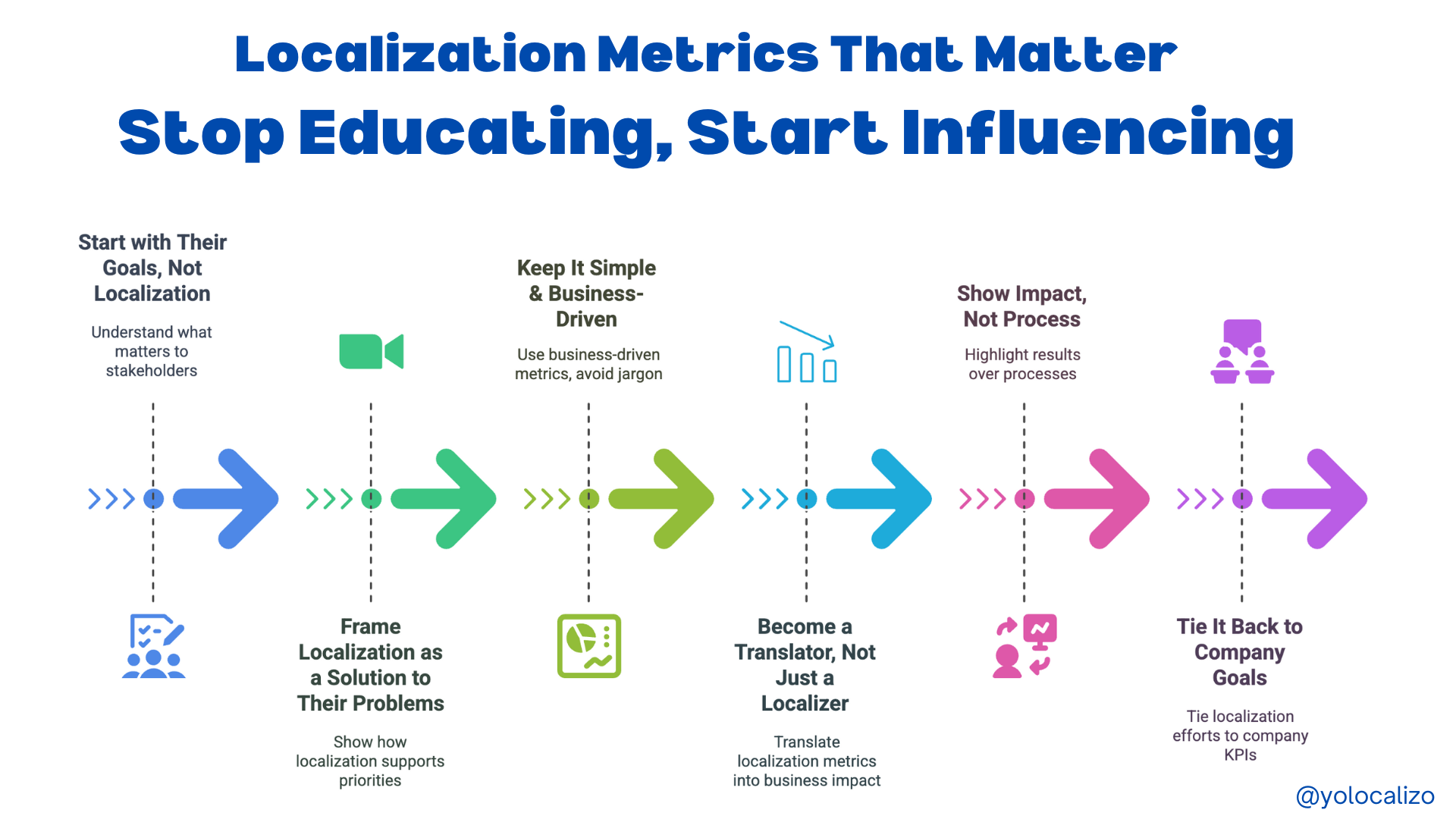


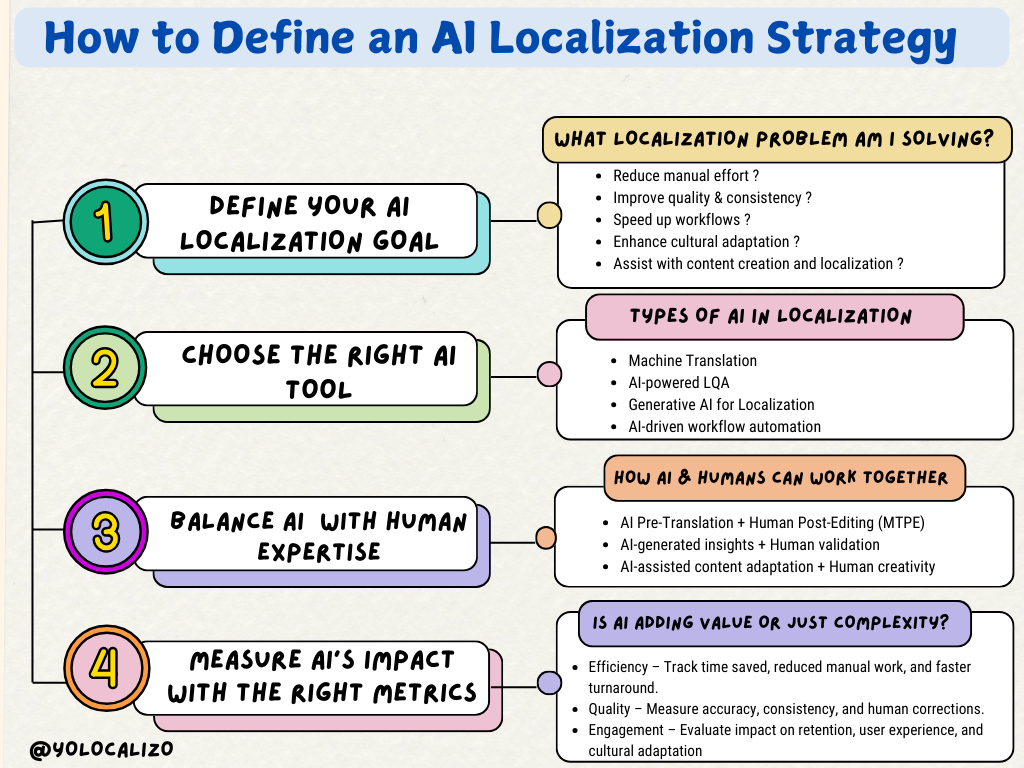


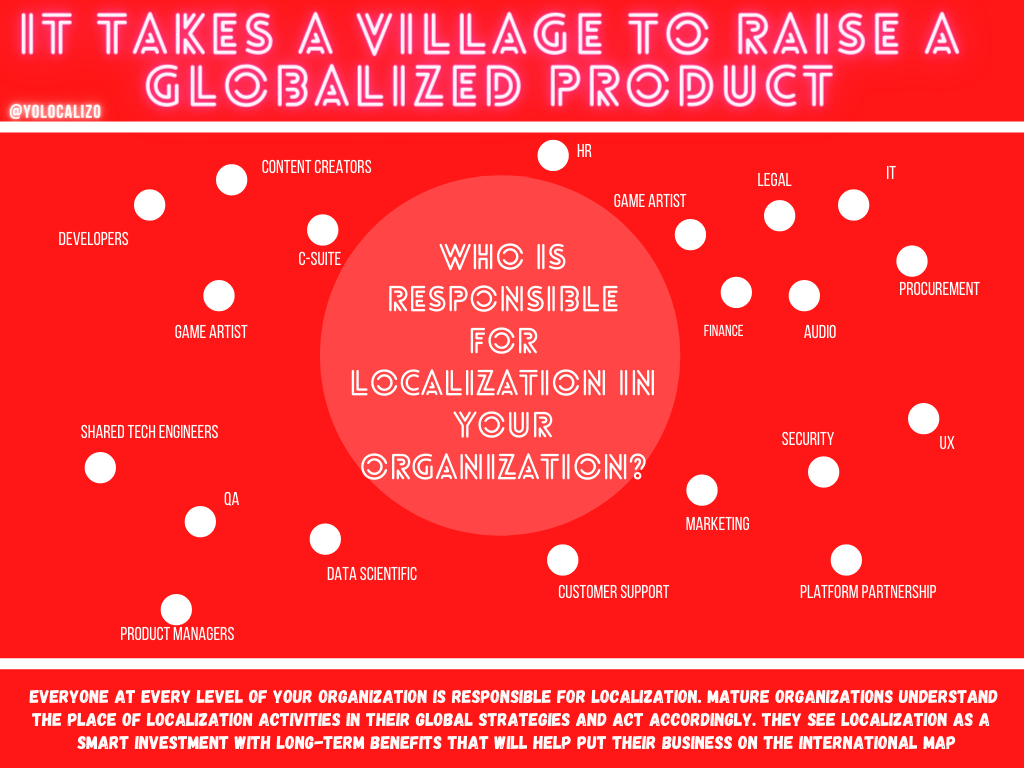



Before jumping on the AI bandwagon: What localization problem are you trying to solve? AI is everywhere right now, including in localization.
But before jumping on the bandwagon, we need to stop and ask:
Are we solving the right problem?